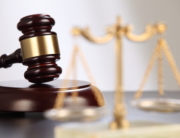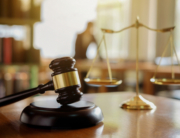Discovery is the stage of a lawsuit in which both sides try to get as much information as they can about the other side’s case. Discovery does not happen until your lawyer files a lawsuit. Discovery does not include the period before filing the lawsuit during which your lawyer and the insurance company exchange information for settlement purposes.
What Are the Primary Types of Discovery?
There are four kinds of discovery:
- Interrogatories (written questions)
- Request for Production of Documents (asking you to turn over documents)
- Depositions (questions the lawyers ask you in person, usually at the office of one of the lawyers, with a court reporter recording everything you and the lawyers say)
- Request for Admissions (requesting that you admit or deny certain facts or allegations)
Is Discovery a Serious Legal Matter?
Yes. All discovery is under oath. This means that you must sign an affidavit that your written discovery responses are true and correct to the best of your knowledge. In the case of a deposition, the court reporter will have you swear that the testimony you are about to give will be the truth, the whole truth, and nothing but the truth.
Are There Rules About How Lawyers Do Discovery?
Yes. There are different rules one must follow when doing discovery, depending on whether your case is in state or federal court. The rules control things like how many days you have to provide documents to the other side or to file answers to their written questions.
What Can Happen if Someone Does Not Tell the Truth in Discovery?
If someone lies in his or her discovery responses or deposition testimony, the judge can sanction him or her for perjury. The lawyers will often ask the witness questions on the stand during the trial, and after the person answers, pull out the deposition transcript or discovery responses to challenge him for not telling the truth. This usually happens when the witness changes his testimony at trial from what he said during discovery. Even if the judge does not make a finding of perjury, the witness’ inconsistent answers damage his credibility unless he convinces the judge of a good reason he changed his answers.
Are There Other Ways Lawyers Can Use Discovery in Court?
Yes. As long as the situation satisfies the applicable procedural rules governing the case, the lawyers from either side can read discovery responses and deposition transcripts into the record during the trial if the witness is unavailable. Also, lawyers frequently use the documents each side provided during discovery as exhibits during trial.
Do You Have to Answer Every Question or Provide Every Document During Discovery?
No. Lawyers call the discovery phase a “fishing expedition.” Sometimes they throw a hook out into the water to see if anything is there. If the other side asks an improper question or requests unnecessary documents, your lawyer will file objections. Some of the common reasons lawyers file objections are that the lawyer on the other side asked:
- Too many questions
- About irrelevant topics
- Poorly drafted questions, usually vague or ambiguous
- About things that are scandalous or unduly prejudicial
You should not try to answer discovery questions or go to a deposition without the guidance of your lawyer. Call the Montero Law Center at 954-767-6500 today to learn your legal rights at no charge.
 English
English  Español
Español 




